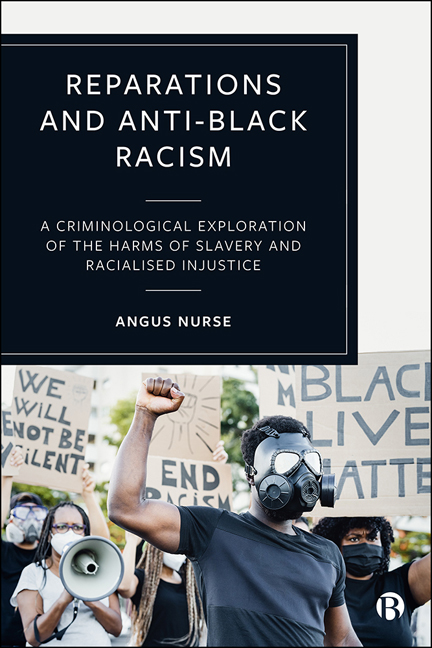 Reparations and Anti-Black Racism
Reparations and Anti-Black Racism Book contents
- Frontmatter
- Contents
- List of Abbreviations
- Acknowledgements
- Preface
- 1 Black Lives Matter: The Legacy of Slavery
- 2 Slavery and Reparations: A Criminological View
- 3 Reparations Litigation: An Overview
- 4 Victims of Slavery and Reparations: Who Suffers?
- 5 A Comparative Analysis of Reparations
- 6 Unjust Enrichment and the Socio-Legal Case for Reparations
- 7 The ‘Value’ of Reparations
- 8 The Nature of Reparations
- 9 Reparations in the 21st Century: Contemporary Debates and Issues on Reparations
- Appendix: Reparations Litigation and Settlements
- Notes
- References
- Index
9 - Reparations in the 21st Century: Contemporary Debates and Issues on Reparations
Published online by Cambridge University Press: 13 May 2022
- Frontmatter
- Contents
- List of Abbreviations
- Acknowledgements
- Preface
- 1 Black Lives Matter: The Legacy of Slavery
- 2 Slavery and Reparations: A Criminological View
- 3 Reparations Litigation: An Overview
- 4 Victims of Slavery and Reparations: Who Suffers?
- 5 A Comparative Analysis of Reparations
- 6 Unjust Enrichment and the Socio-Legal Case for Reparations
- 7 The ‘Value’ of Reparations
- 8 The Nature of Reparations
- 9 Reparations in the 21st Century: Contemporary Debates and Issues on Reparations
- Appendix: Reparations Litigation and Settlements
- Notes
- References
- Index
Summary
This concluding chapter examines contemporary debates in reparations and the reparations movement and returns to the earlier discussion of legal, political and social conceptions on reparations. Differences exist in reparations discourse in the US and UK where different reparations movements and considerations are at play. But the US has experienced a greater level of reparations litigation than the UK and arguably has a more advanced conception on the nature of reparations claims.
This chapter's core focus is on constructing a criminological theory of reparations, building on discussions in the previous chapters. It sets out the case for reparations as linked to notions of justice, forgiveness and repairing harm even though in one sense this may not be possible from a criminological perspective where those who died as a direct consequence of slavery and anti-Black racism cannot now directly receive a remedy. But reparations can reflect not just the harm caused to those who have died, but also the wider suffering caused to affected groups and their intergenerational trauma. Corrective justice is often about repairing harm with the ideal being that of restoring the aggrieved person to the position they would have been in had the wrong not occurred. There are challenges in doing so for a person who has died or, for example, the victims of a genocide. But some form of reparation can be provided via a form of redress if only by way of an apology or consideration of the harm caused to their family or descendants. Reparations can thus be made indirectly via compensation payments to descendants and can be either ‘pure’ reparation in the form of direct compensation to an aggrieved individual or group, or can be a wider reparative approach incorporating restorative justice principles (as outlined in Chapter 8). Examples of contemporary reparations initiatives are contained within this chapter's discussion.
In constructing its theory on reparations, this chapter examines some of the arguments against reparations set out by governments and objectors and which draw on the neutralization techniques discussed earlier in this book. This chapter's theory of reparations argues for a menu of reparative tools to be deployed to provide a holistic approach to reparations.
- Type
- Chapter
- Information
- Reparations and Anti-Black RacismA Criminological Exploration of the Harms of Slavery and Racialised Injustice, pp. 111 - 129Publisher: Bristol University PressPrint publication year: 2021


